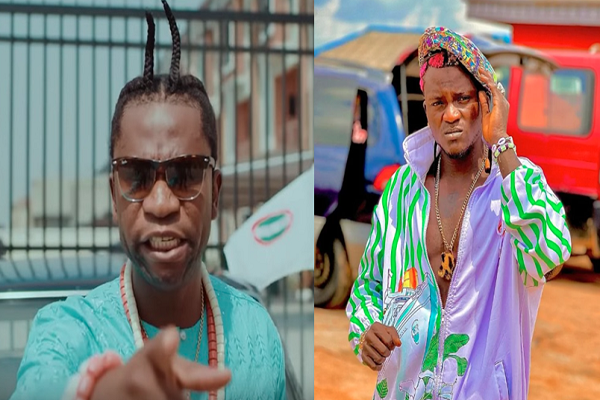Entertainment
FG’s Ban On Smoking, Ritual Scenes In Films Divide Nollywood Stakeholders Views

The Federal Government’s recent move to enforce a prohibition on smoking, money rituals, and ritual killings in Nigerian films has sparked a contentious debate within the Nollywood community.
The announcement, made by Dr. Shaibu Husseini, Executive Director of the National Film and Video Censors Board (NFVCB), aims to curtail the glamorization of such acts in movies, musical videos, and skits, under a new regulation approved by the Minister of Arts, Culture, and Creative Economy, Hannatu Musawa.
During a national stakeholders’ engagement on smoke-free Nollywood in Enugu, Dr. Husseini emphasized that the regulation seeks to discourage harmful content and promote positive values, particularly for teens and young adults who form a significant portion of the Nigerian movie audience.
The NFVCB plans to implement extensive educational programs across schools, communities, and faith-based groups to highlight the dangers of smoking and the negative influence of ritualistic scenes.
However, the policy has received mixed reactions from industry stakeholders. Veteran actor Bob Manuel Udokwu supports the government’s move, explaining that it is not an outright ban but a measure to prevent inadvertent promotion of smoking and ritual acts. He believes that filmmakers can still depict such scenes when necessary for storytelling, such as in documentaries or true-life stories.
Conversely, actress Jennifer Obodo criticises the government for focusing on Nollywood instead of addressing pressing national issues like high fuel prices, food shortages, and poor infrastructure.
She argues that movies are a form of storytelling and that banning these elements does not address the root of the problem, suggesting that the government should instead regulate cigarette production and sales.
Ngozi Eze Evuka, another actress, argues against the ban, stating that movies educate and entertain rather than corrupt viewers. She fears that banning smoking and ritual scenes could lead to further restrictions on other narrative elements in Nollywood, such as sexual acts and depictions of traditional practices.
Nollywood producer Nnaemeka Charles Eze (Nani Boi) also opposes the ban, suggesting it distracts from more critical national issues and could stifle creative expression. He proposes that an oversight body should ensure films meet ethical standards without compromising artistic freedom.
Despite the opposition, some, like Nelson Bright, view the ban positively, linking it to broader efforts to combat human trafficking and illegal organ harvesting. Nonetheless, he acknowledges that such restrictions could limit personal liberty and drive filmmakers away from the Nigerian cinema industry, potentially impacting its international recognition and profitability.
Don Sylvester Nweke, CEO of Don Sylvester Records, believes the ban is unnecessary and suggests that films should instead depict the negative consequences of smoking and rituals to educate viewers. He argues that censorship should focus on ensuring films convey moral lessons rather than outright banning content.
Maxi Okwu, former National Chairman of APGA, raises constitutional concerns, emphasizing the need to protect fundamental rights to freedom of thought, conscience, and religion. He warns that the ban might infringe on these rights and suggests that any law limiting such freedoms would require constitutional amendments.
As Nollywood grapples with this contentious regulation, the debate underscores the delicate balance between artistic freedom and social responsibility in the film industry.
Entertainment
Speed Darlington Released From Kuje Prison After Court Order

Controversial Nigerian singer Darlington Okoye, popularly known as Speed Darlington or Akpi, has been released from Kuje Prison following a court directive.
Activist lawyer Deji Adeyanju disclosed this development on Tuesday, stating on X (formerly Twitter), “Speed Darlington is out of Kuje Prison.”
The singer’s release came after an Abuja court granted him bail. This decision followed intense public pressure on the Nigeria Police Force, which led to his arraignment.
READ MORE: WHO Expresses Regret Over US’ Withdrawal
Prior to his release, Speed Darlington had petitioned Deputy Inspector-General of Police, Force Intelligence Bureau, DIG Dasuki Galadanchi, over his prolonged detention. He called on the DIG to comply with a court order directing his release or formal arraignment.
Justice M.S. Liman had earlier issued an order on December 23, 2024, mandating the police to charge the singer within 48 hours or release him unconditionally.
Speed Darlington’s arrest stemmed from allegations he made against Grammy Award-winning singer Burna Boy. The singer accused Burna Boy of being involved in an immoral relationship with embattled U.S. rapper and music executive Sean Combs, also known as P. Diddy.
The situation has sparked widespread discussions, with many Nigerians expressing relief at Speed Darlington’s freedom while others continue to debate the circumstances surrounding his arrest.
Entertainment
Dele Odule Reflects On His Saddest Life Moment: Losing His First Child
Veteran Nollywood actor, Dele Odule, has opened up about the most heartbreaking moment of his life, revealing it was when he lost his first child.
The 63-year-old Yoruba movie icon shared the emotional experience during an interview with his colleague, Kunle Afod, recounting how the loss deeply affected him, especially given the challenges surrounding the child’s birth.
READ MORE: JUST IN: Adeleke Congratulates New DG, PEBEC, Princess Audu
Odule described the tragic news as “very hard” to bear, adding that he has since come to accept it as the will of God. Despite the acceptance, the actor expressed his fervent hope never to endure such a devastating tragedy again.
He said, “The saddest moment of my life was when I was called that my first child died. It was very hard on me. It was hard because of the situation faced during the child’s birth, but no one can question God’s authority. It was so bad that I don’t pray for it anymore.”
Known for his roles in classic Yoruba films, Odule continues to share both his professional and personal experiences, endearing himself to fans and colleagues alike.
Entertainment
What Burna Boy Told Me After Giving Me $30,000 — Cubana Chief Priest’s Cousin
In early January 2025, Grammy-winning Nigerian artist Burna Boy fulfilled a promise by gifting $30,000 to Bethel Okechukwu, a phone repairer from Alaba Market who had claimed to be related to socialite Cubana Chief Priest.
This act of generosity occurred amid an ongoing feud between Burna Boy and the Cubana Chief Priest.
READ MORE; I Love Men Who Use Sex Toys On Me, Says Ada La Pinky
Following the donation, Cubana Chief Priest clarified that Bethel Okechukwu is not his brother, stating, “I have only one biological big brother & two kid sisters. They ain’t doing so bad.” He emphasized that he is not obligated to support his siblings financially and urged the public to verify such claims.
As of now, there are no credible reports indicating that Burna Boy instructed Bethel Okechukwu to take any specific actions towards Cubana Chief Priest after receiving the $30,000. The narrative appears to be centered around Burna Boy’s charitable gesture and Cubana Chief Priest’s subsequent clarification regarding his familial relationships.
Watch Video here
















